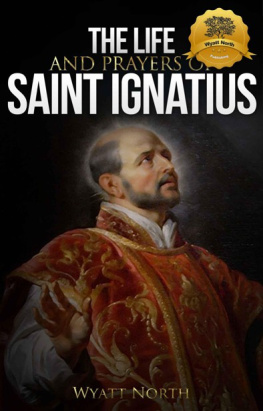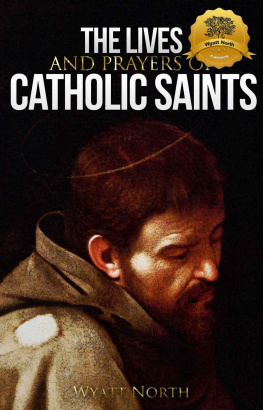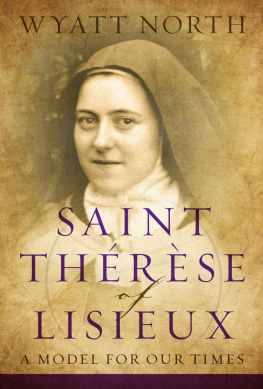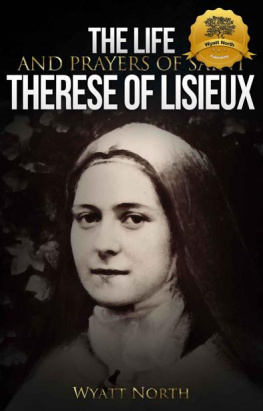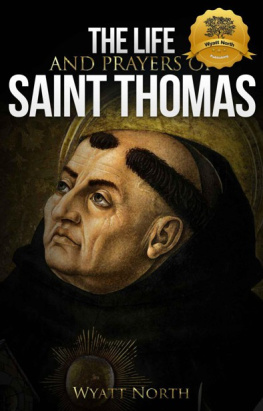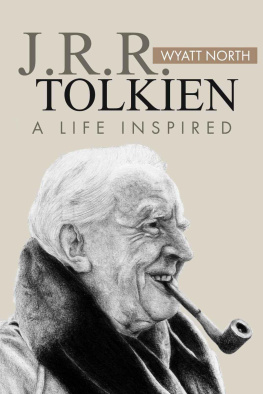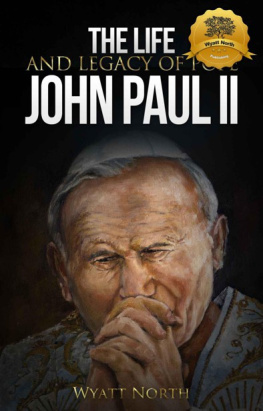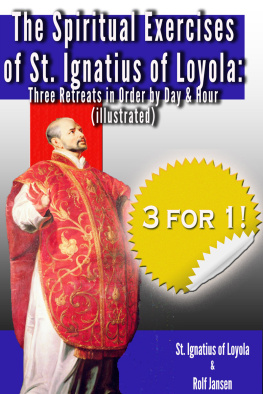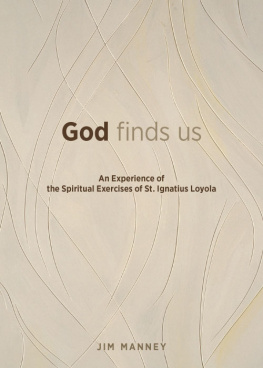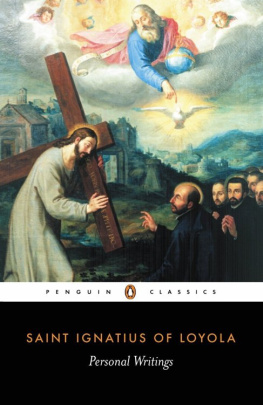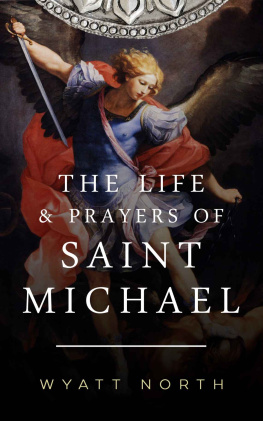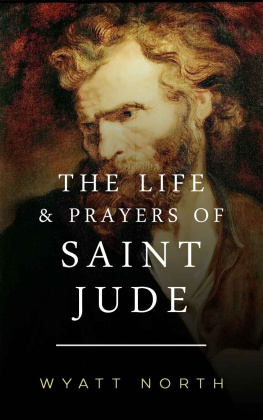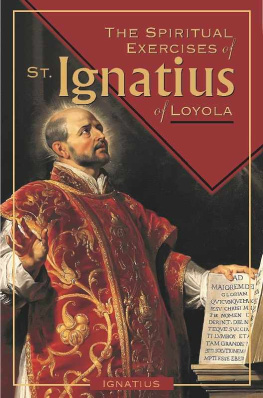One part biography, one part prayer book, The Life and Prayers of Saint Ignatius of Loyola is an essential for any Christian.
From a life of self-indulgent vanity, the calling of God transformed the life of Inigo Lopez de Loyola beyond imagination. From the time of conversion, St Ignatius, Father of the Jesuits, sought only the will and glory of God.
Today his spirituality continues to influence both Christians and non-Christians around the world, the legacy of a humble man who epitomized the motto of his order throughout his life.
This holy, self-aggrandizing man turned his back on the self-indulgences of courtly life, seeking only Gods approval and taking his word out onto the streets and to the sick and the poor. His ministry was his life and if all of lifes activities represent the opportunity for prayer, as Ignatius fervently believed, then no life epitomized this more than that of Ignatius of Loyola.
Following in the steps of Saint Ignatius, Cardinal Jorge Bergoglio of Argentina was elected Pope Francis I on March 13, 2013 and is the first Jesuit pope.
All books in The Life and Prayers series come complete with a Touch-or-Click Table of Contents, divided by each section.
Enjoy.
Quick Facts
The new Quick Facts section in The Life and Prayers collection provides the reader with a collection of facts about each saint!
Born:
December 24, 1491, Azpeitia
Died:
July 31, 1556, Rome
Feast:
July 31
Attributes:
Eucharist, chasuble, book, cross
The Life of Saint Ignatius
The Early Years
The closing years of the fifteenth century were portentous for the nation of Spain. After years of conflict, in 1492 the Spanish army recaptured Granada from the Moorish nation who had occupied the region since the eighth century. The earlier reunion of the provinces of Castile and Aragon meant the country was united for the first time in centuries. As if inspired by this success, in that same year, the legendary explorer Christopher Columbus finally set sail purportedly in search of the Orient only to discover the Americas.
Spain was a land of hope and promise, undermined only by potential religious conflict. While the marriage of Ferdinand of Castile to Isabella of Aragon united the nation under a predominantly Catholic faith, the influence of the Spanish Inquisition was a permanent presence in a Spanish society attempting to ensure the strict observation of Catholic orthodoxy.
It was into this eclectic world that God placed a saint whose influence still reverberates around the world today, the mystical father of the Society of Jesuits, St Ignatius of Loyola.
Inigo Loyola arrived in this world on December 24, 1491. The youngest of thirteen children born to Dona Marina Sanchez de Licona and Beltran de Onaz, it is believed that Inigos mother died not long after his birth. His care was left to his father and siblings in the familys castle of Loyola, situated close to the Spanish town of Azpeitia, lying in the Basque province of Guipuzcoa in northern Spain. Of Spanish nobility, the family enjoyed long standing historical ties to the region and in particular influential connections with government and the Catholic Church. Inigos father was also a vocal supporter of the union of Ferdinand and Isabella.
Named after the revered eleventh century abbot, St Inigo, the infant boy was baptized Inigo Lopez de Loyola at the parish church of San Sebastian de Soreasu. It was only later in his life that he would adopt the name Ignatius.
As the youngest child of thirteen, Inigo understood that he would be required to find his own way in life and his options were numerous. With the inadvertent discovery of the New World, the allure of adventure and exploration appealed to many young men of the time. Several of Inigos older brothers were soldiers and sadly, his oldest brother, Juan, had died in 1496 while fighting the French. The priesthood was another option open to Inigo; his brother Pero had chosen to serve God early on in his life, becoming an ordained priest.
Yet these options did not appeal to the less academically inclined Inigo, who was not motivated by the thought of additional education and study. Like many young men of the time, Inigo was inspired by the influences of chivalry, courtly love and noble deeds.
When Inigo reached sixteen years of age, Don Juan Velazquez de Cuellar, treasurer to King Ferdinand and Queen Isabella contacted his father to offer a place within their household to one of his sons. It was Inigo who was chosen for this auspicious opportunity. In 1507, Inigo set out on the arduous journey to the town of Arevalo, some two hundred and forty miles away from Azpeitia to join the Velazquez family, a choice which was to prove timely as Inigos father died shortly afterwards.
The years spent in the Velazquez household served Inigo well. He travelled extensively with Velazquez, made many new influential acquaintances from within the church and the government and learned vital social skills, from etiquette to to horse riding. As the role of a page demanded, he became more skilled and adept at writing, with his demeanour and dress reflecting his rising social status. He read widely, preferring tales of chivalry and gallant knights, such as Amadis de Gaula (The Prince of Wales), the tale of a knight equipped with supernatural powers which rendered him ideal to the ambitious Inigo.
As many young male courtiers before him, the headstrong young Inigo also found himself distracted by the darker side of Spanish courtly life, developing a fondness for the company of ladies, together with a growing addiction to gambling. He was not averse to conflict either, often engaging in swordplay. Later in his life, his secretary Polanco would observe:-
Though he was ever loyal to the faith, he did not live in conformity with it, nor did he preserve himself from sin. Especially did he indulge in gaming, dueling and affairs with women ( Autobiography of St Ignatius)
This was a view that the saint himself would also confirm, referring to himself as:-
a man given to worldly vanities, and having a vain and overpowering desire to gain renown ( Autobiography of St Ignatius )
These hedonistic indulgences sometimes spilled over into other areas of his life which were nowhere more prevalent than on a reported incident during one particular visit home. Inigo and his priestly brother Pero were involved in a dispute with local clergy resulting in censure by the local authorities who sought to persecute them.

